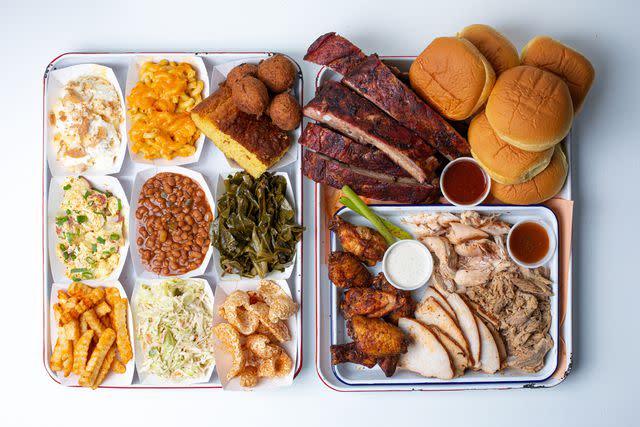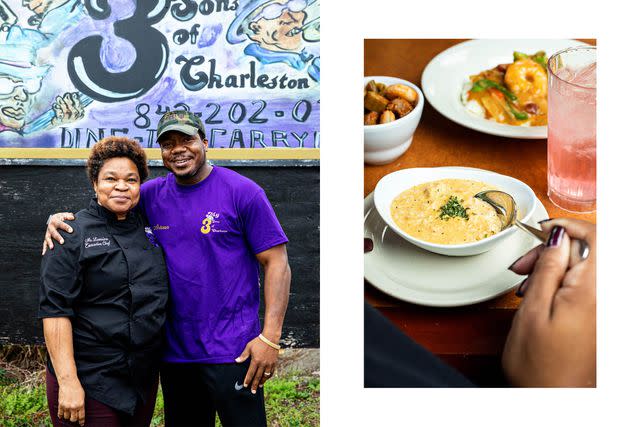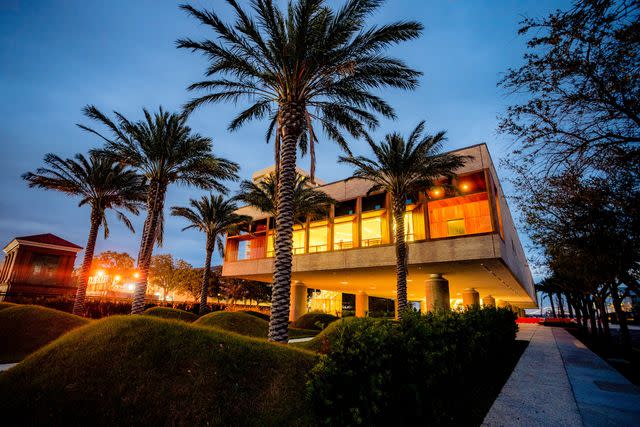This Travel Guide Highlights Charleston’s Black Heritage — With Black-owned Eateries, Shops, and Tours
The 60-page guide includes bakeries, food trucks, art galleries, boutiques, and tours celebrating Black heritage in the South Carolina city.
Perhaps it’s appropriate that the roots of “We Shall Overcome” trace back to Charleston. Originating as a song Black women sang during the American Tobacco Company labor strike in 1945 and 1946, it grew into an anthem of the country’s civil rights movement. But for centuries, the South Carolina city has encompassed that spirit amid a complicated and storied history that’s being spotlighted in the new edition of Explore Black Charleston Guide.
“Ever since West Africans touched these shores in 1526, they found ways to resist the powers that attempted to subjugate, brutalize, and exploit them,” the guide said. “From enslavement to emancipation, the Jim Crow period and into modernity, the Black community’s desire to educate and liberate themselves from unfair and unequal treatment is a mainstay.”
It’s with that mentality that the 2023 edition of the guide, published in June, was created. The goal is to provide visitors the opportunity to “dive deeper into the culture” by including a “comprehensive round-up of notable Black-owned restaurants and businesses, significant African American historical landmarks and more,” a release obtained by Travel + Leisure explained.
With August being National Black Business Month, there's no better time to support the city's Black-owned bakeries, eateries, food trucks, art galleries, gift shops, boutiques, and tour companies. Among those highlighted in the guide are dining hotspots, like CKBakes4U, best known for its crab pies; Daddy’s Girl Bakery, which is famous for its famed Charleston Chewies; My Three Sons of Charleston, which has some notable chicken and waffles; and Rodney Scott’s BBQ, which is known for its whole-hog barbecue.

Angie Mosier

Courtesy of My Three Sons of Charleston
Also featured are Chuma Gullah Gallery with art for all budgets of Gullah culture, Gullah Dolls of Charleston by Genya for handmade traditional African dolls, and The Tiny Tassel for gifts designed and made in town.
In addition to the businesses, the guide also includes historical sites like the Avery Research Center for African American History and Culture, Charles Towne Landing State Historic Site, Gibbes Museum of Art, and the International African American Museum. The latter describes itself as honoring the “untold stories of the African American Journey at one of our country’s most sacred sites.”

Courtesy of the International African American Museum
“After taking in the powerful stories and picturesque splendor of the most historically protected city in the United States, visitors can choose to stay in the heart of downtown’s historic district at Emeline, a thoughtfully designed retreat curated with the curious traveler in mind, or at The Ryder, a sophisticated boutique hotel that playfully challenges the ordinary for the adventurous and authentic travelers,” the release added.
Printed copies of the Explore Black Charleston Visitor Guide can be picked up for free at Explore Charleston’s Visitor Centers located in downtown Charleston, Kiawah, Mount Pleasant, and North Charleston. It can also be accessed online line at issuu.com.
For more Travel & Leisure news, make sure to sign up for our newsletter!
Read the original article on Travel & Leisure.

